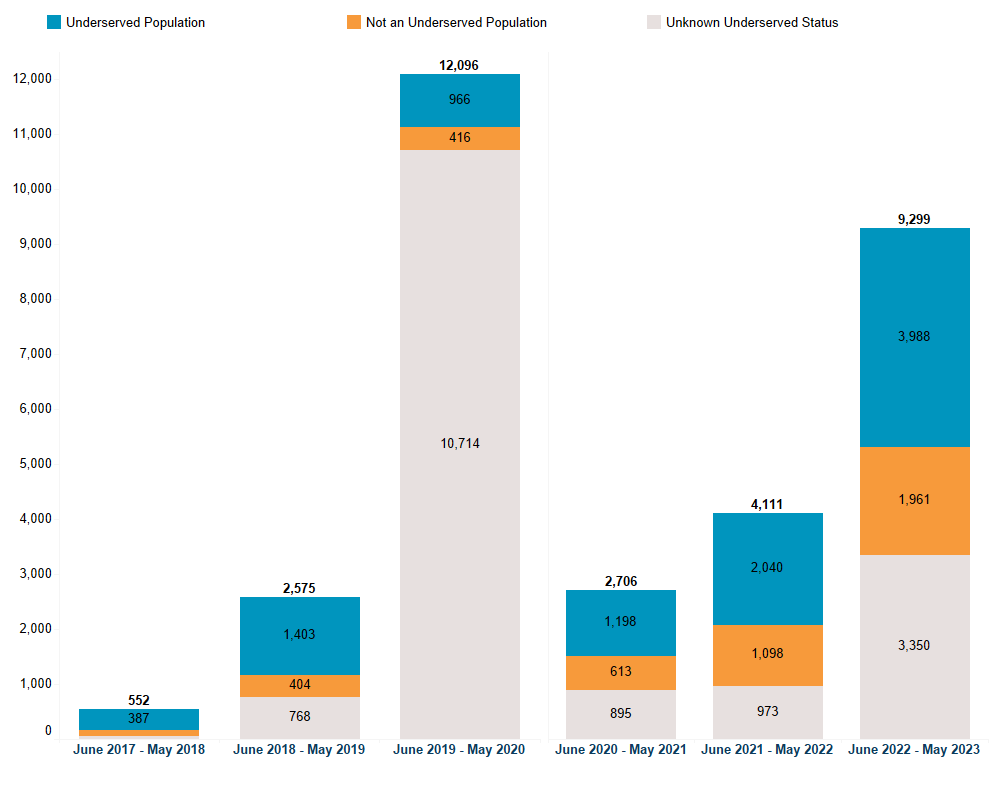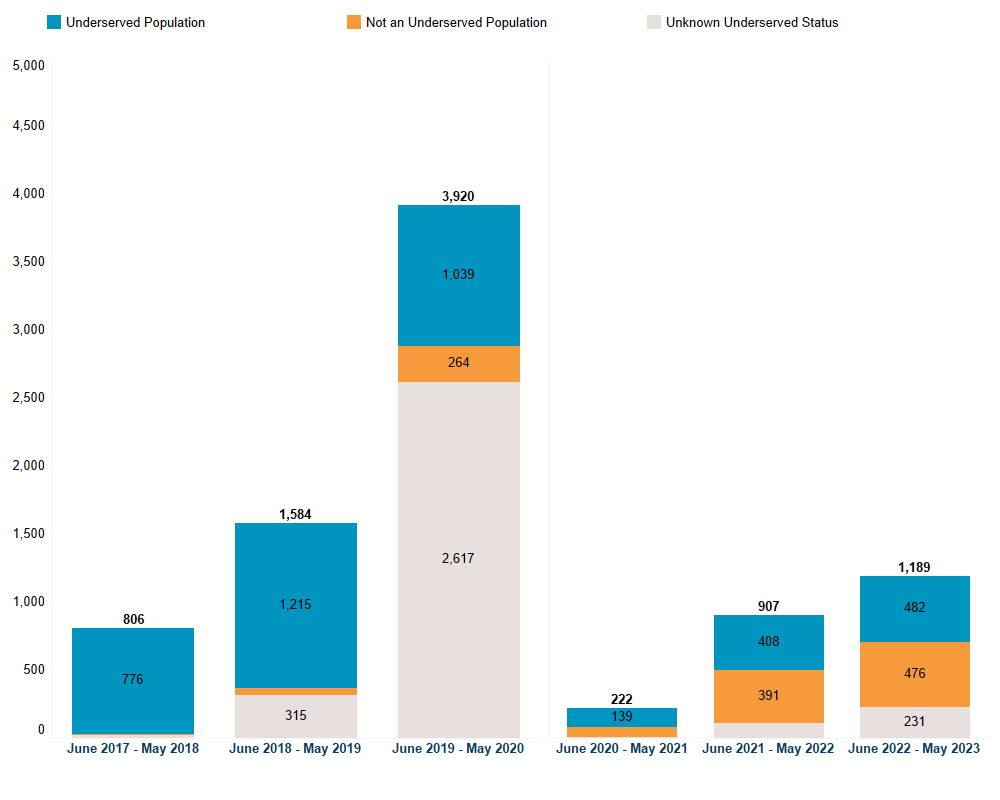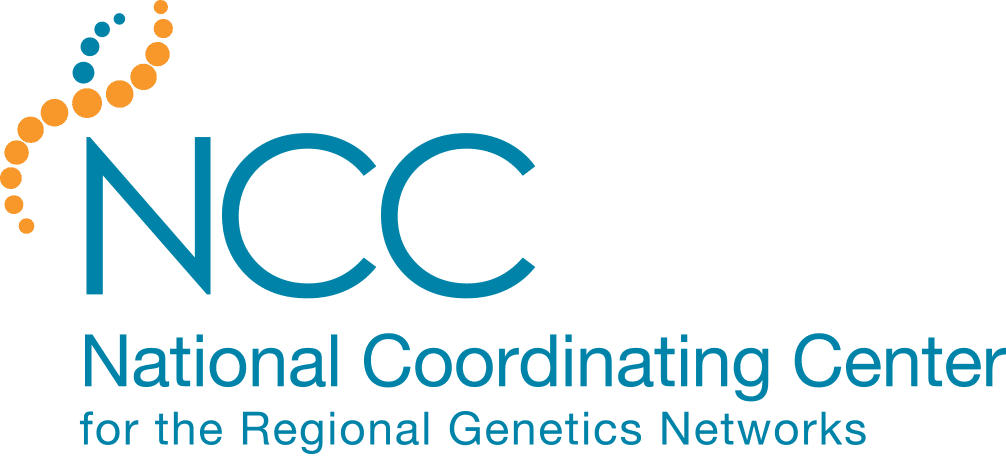From 2004 to 2024, the Health Resources and Services Administration (HRSA) funded the seven Regional Genetics Networks, the National Coordinating Center for the Regional Genetics Networks, and the National Genetics Education and Family Support Center.
With the conclusion of funding, the evaluation efforts of the system have ended. This page will not include data for the final funding year (2023-2024).
Links to: Evaluation Homepage | Connecting Patients to Genetics | Telegenetics
Education and Training
227 educational events were held by the RGN/NCC/NGEFSC System from June 2022 to May 2023.
The seven Regional Genetics Networks (RGNs), the National Coordinating Center for the Regional Genetics Networks (NCC), and the National Genetics Education and Family Support Center (Family Center) educate and train people on genetics and the genetic service delivery system.
Specifically, the system focuses on developing education and training activities that help reach underserved populations. We use zip code data to determine if an individual or provider comes from an underserved area as defined by the Health Resources and Services Administration (HRSA). To learn more about our data collection and evaluation program, please click here.
Below are select data from our education and training efforts, including examples from across the country.
Providers
Our Previous Year (June 2022-May 2023)
Providers Served
The RGN/NCC/NGEFSC system work with professionals, including genetic providers, non-genetics providers, public health professionals, allied health professionals, students, and many more. The goal is to educate on either a specific topic/condition in genetics or to educate them on system-wide initiatives, such as telehealth, to improve access to genetic services.
In Year 6 (June 2022- May 2023), the system reached 12,018 providers. These providers who participated in events such as NERGN’s Project ECHO series, NCC’s Healthcare Interpreter Training program, and SERN’s Lunch and Learn series.
Trends from June 2017-May 2023
Beyond the educational activities held in Year 6 (June 2022-May 2023), our system has worked over the last six years to provide education and training to as many providers as possible. As noted in the chart below, our system has been increasing the number of providers served per year, excluding Year 4 (June 2020- May 2021), which saw a spike due to virtual events held due to COVID-19.
Over the last six years, educational offerings have included, SERN’s eGNA platform, which helps provide education to metabolic dietitians, NYMAC’s Annual Meeting, and WSRGN’s Minority Genetics Professionals Network events.
Providers Participating in RGN/NCC/NGEFSC Education or Training Activities

68.5% (n=14,577) of providers who provided their zip code and participated in an education or training activity were identified as practicing in underserved areas from June 2017 to May 2023.
Please note that the total number of providers reported is based on those providers who have a reported MUA/P status.
Individuals/Families
Our Previous Year (June 2021-May 2022)
Individuals/Families Served
In addition to educating and training providers, the RGN/NCC/NGEFSC system assists in the education and training of individuals and families who have or are at risk for genetic conditions.
In Year 6 (June 2022-May 2023), the system reached over 1,000 individuals and families through a variety of efforts including, but not limited to, NGEFSC’s webinars, MSRGN’s Genetic Pop-Ups, MGN’s Sickle Cell Advocacy Training program.
Trends from June 2017-May 2023
As displayed below, the RGN/NCC/NGEFSC system has, over the past six years, worked to reach individuals and families through genetics education and/or training. Some activities are targeted to underserved populations, such as HRGN’s educational partnership with the Marshallese population.
Individuals/Families Participating in RGN/NCC/NGEFSC Education or Training Activities

74.9% (n=5,022) of individuals/families who provided their zip code and participated in an education or training activity were from underserved areas from June 2017 to May 2023.
Links to: Evaluation Homepage | Connecting Patients to Genetics | Telegenetics
Last Updated on June 24, 2024
